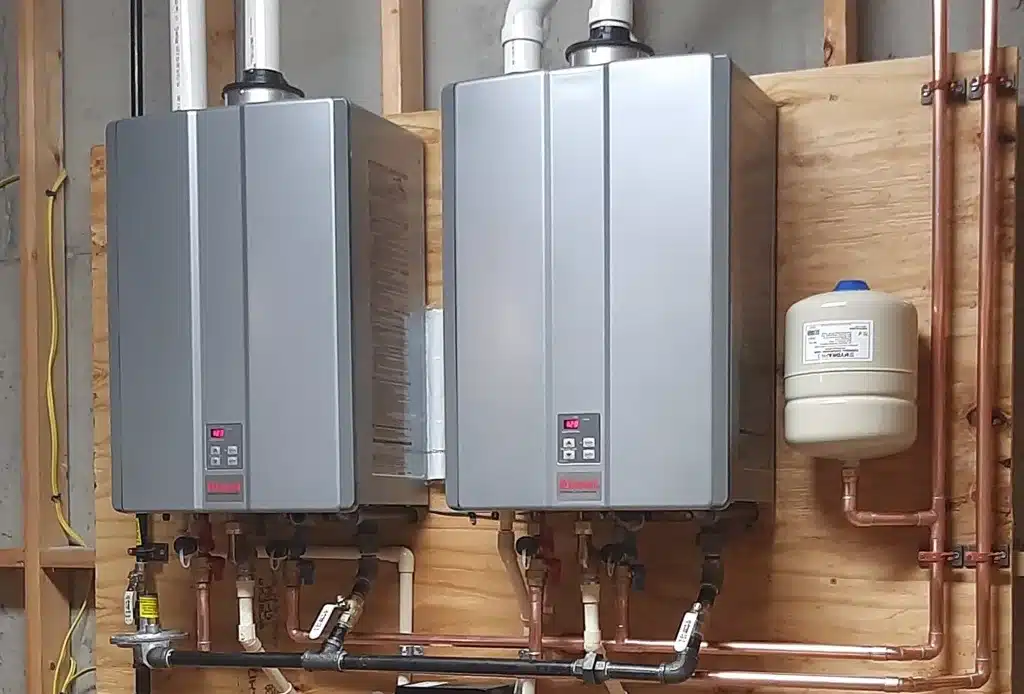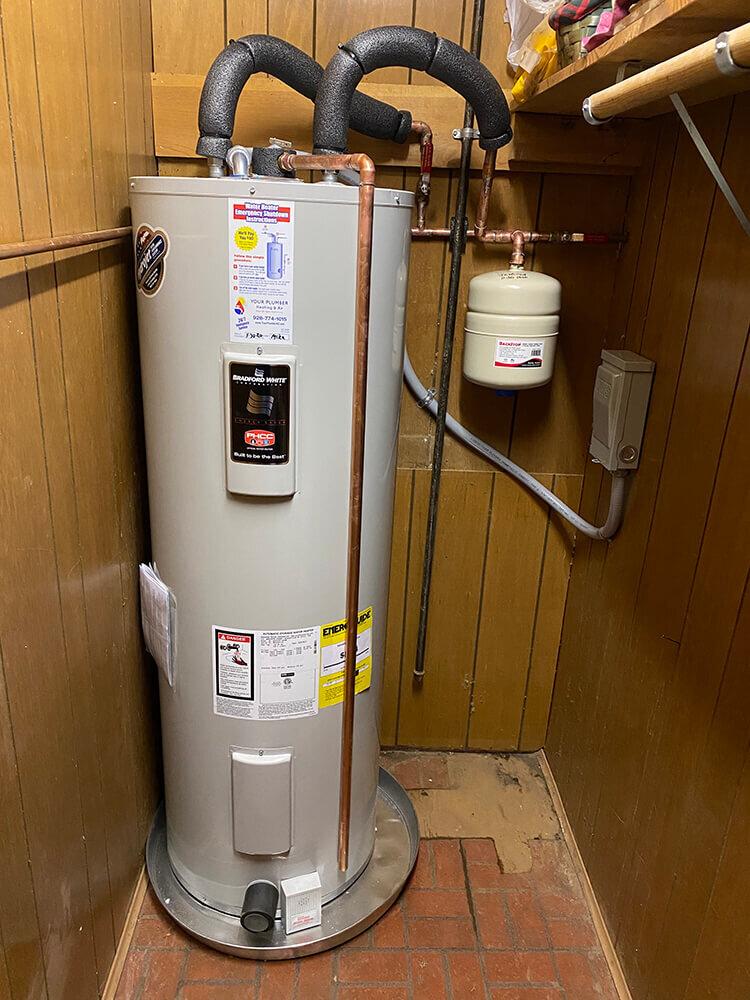Fast and Reliable Pipe Repair to Fix Leaks and Restore Functionality
Fast and Reliable Pipe Repair to Fix Leaks and Restore Functionality
Blog Article
Complete Guide to Water Heating UnitInstallation and Replacement
Recognizing the intricacies of hot water heater installation and substitute is crucial for property owners looking for to make certain efficiency and integrity in their warm water supply. From picking the ideal type and size to executing a seamless setup procedure, numerous factors need to be considered to prevent typical risks. This overview will certainly give you with the required steps and insights to navigate the complexities of this home improvement job, while additionally stressing crucial maintenance practices that can lengthen the life of your system. As you explore these aspects, you may find yourself reassessing your current arrangement and recognizing locations for enhancement.
Kinds Of Hot Water Heater
When considering water heater installment and replacement, it is necessary to understand the various kinds of water heating units offered on the market. One of the most typical types consist of storage tank water heating units, tankless water heaters, heat pump water heaters, and solar water heating systems.
Storage tank water heaters are standard systems that keep a certain volume of warm water, making them readily offered when needed. They are usually more economical ahead of time however might sustain higher power costs with time because of warmth loss. On the other hand, tankless hot water heater provide hot water on need, getting rid of the demand for storage. They are power reliable and can save area, but their first prices are typically greater.
Heatpump hot water heater make use of power to move warmth from the air or ground to heat water, offering considerable power financial savings but needing even more space and certain installment problems. Lastly, solar hot water heater harness solar power to warm water, providing an eco-friendly option with prospective lasting cost savings, although they commonly call for a back-up system for over cast days.
Recognizing these options makes certain educated choices relating to setup and replacement, accommodating details requirements and preferences.
Picking the Right Dimension
Choosing the suitable size for a hot water heater is vital to ensure ideal performance and performance. An unit that is also small will struggle to satisfy home needs, causing inconsistent warm water availability and raised energy intake. On the other hand, a large water heating unit can result in unneeded energy waste and greater utility bills.
To establish the appropriate dimension, take into consideration the family's height hot water use. This can be calculated based on the variety of passengers and their typical warm water needs. For instance, a family of 4 might require a hot water heater with a capacity of 50 to 80 gallons, depending upon the use patterns, such as synchronised showers and laundry.
Furthermore, assess the healing price, which determines just how quickly a heating unit can restore hot water after it has actually been used. For tankless designs, emphasis on the circulation rate, determined in gallons per minute (GPM), to ensure it satisfies the house's synchronised demand.

Setup Refine Introduction

Following, the old system should be detached and eliminated, taking treatment to adhere to local codes and laws relating to disposal. When the old device is out, the brand-new water heating unit can be positioned in position. This action involves connecting the water lines, making sure that all fittings are safe and secure and leak-free.
After establishing water connections, it's essential to attach the power supply, whether electrical or gas, following the maker's guidelines diligently. As soon as all links are made, the system must be loaded with water, and the power can be transformed back on. Lastly, it is essential to examine for leaks and make sure the water heater is operating properly before finishing the installment procedure.
Common Setup Blunders

Another regular blunder is ignoring to adhere to neighborhood codes and regulations. Falling short to adhere to these criteria can not just lead to safety hazards yet might likewise result in pricey penalties or the demand for expensive reinstallation.
Failing to safeguard connections or making use of the incorrect type of fittings can lead to leakages and water damages. By avoiding these typical installment blunders, house owners can ensure their water heating unit operates securely and efficiently, taking full advantage of performance and long life.
Upkeep Tips for Long Life
Proper upkeep of a water heater is essential for its long life and optimal efficiency. Regular assessments and maintenance can protect against expensive repair services and extend the device's life expectancy. Begin by inspecting the temperature level setup; it should typically be established between 120 ° F and 140 ° F for optimal power effectiveness and safety.
Every six months, flush the tank to remove debris accumulation, which can impair home heating effectiveness and cause deterioration. To do this, turn off the heating system, connect a pipe to the drain valve, and allow the water run up until it is clear.
When they are corroded,Anode rods must be checked yearly and changed. These rods aid avoid tank he has a good point deterioration by attracting harsh elements in the water.
In addition, examine the pressure safety valve on a regular basis to ensure it is operating correctly. This valve is vital for protecting against extreme pressure buildup within the tank.
Finally, take into consideration scheduling a specialist upkeep check every couple of years for thorough assessments and servicing. By sticking to these upkeep tips, home owners can substantially enhance the performance, security, and lifespan of their hot water heater, making certain trusted warm water for many years ahead.
Final Thought
Finally, correct setup and maintenance of hot water heater are important for making sure effectiveness and long life (gas leak repair). Choosing the proper kind and size, sticking to installation guidelines, and preventing typical blunders significantly add to optimal performance. Regular upkeep checks and specialist servicing aid endure functionality and stop costly repair work. By understanding these important aspects, home owners can achieve a reputable warm water supply while lessening potential issues associated to Homepage hot water heater procedure.
Comprehending the ins and outs of water heating system installment and replacement is important for home owners looking for to make sure effectiveness and reliability in their hot water supply.Tank water heating systems are standard systems that keep a certain volume of warm water, making them conveniently available when required. In contrast, tankless water heating units give warm water on need, removing the need for storage. Picking a water heating system that is either too little or also huge can lead to ineffectiveness, resulting in inadequate hot water supply or extreme energy usage.
By recognizing these vital facets, homeowners can achieve a trusted warm water supply while minimizing potential issues associated to water heating unit operation. water heater installation.
Report this page